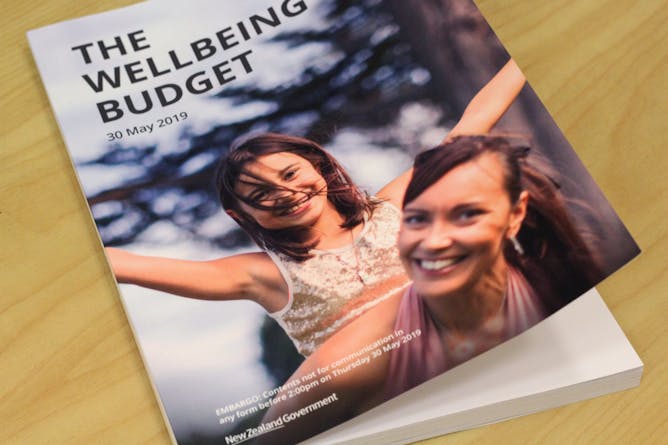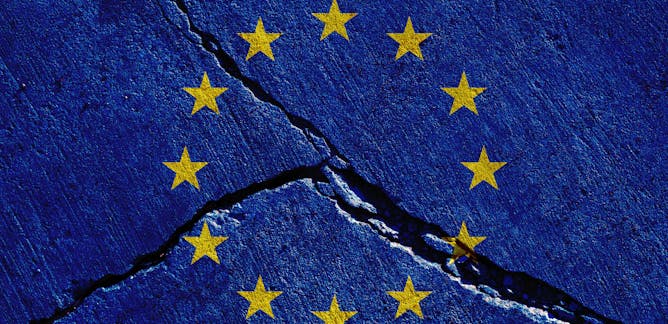|
|
|
Editor's note
|
|
Nau mai haere mai and welcome to this week’s New Zealand newsletter.
Last Thursday, the government released its long-awaited well-being budget, and New Zealand experts have provided analysis of different aspects of it. Massey University expert in ecological economics, Murray Patterson, looks back at the history of efforts to find a replacement for GDP and to account for the social and environmental costs of economic activity. Also at Massey, Christoph Schumacher looks at the fundamental step change in prioritising well-being over economic growth and moving away from GDP as a sole indicator of a nation’s prosperity.
Mental health was at the centre of the budget, with a record NZ$1.9 billion package. Dougal Sutherland, a clinical psychologist at Victoria University of Wellington, explains how that will change the services available to people.
Massey University’s Robert McLachlan explores whether the budget will be transformational in enabling New Zealand’s transition to a low-emissions economy, while Kate Prickett, at Victoria University of Wellington, asks why children had no say in the budget and Simon Chapple argues that the government should have focused more strongly on reducing unemployment.
And among the many interesting articles from The Conversation’s international editions, you’ll find a piece about how China is still trying to whitewash the crackdown on pro-democracy protests in Tiananmen Square from its history, 30 years on, and an article about Eid al-Fitr, which Muslims throughout the world will celebrate this week.
Feel free to forward this email to anybody you think would enjoy this newsletter. They can sign up here. Thank you for reading. Ngā mihi nui ki a koutou.
|
Veronika Meduna
New Zealand Editor
|

|
|
Top stories
|

New Zealand’s well-being budget was based on a set of measures that include cultural identity, environment, income and consumption, and social connections.
from www.shutterstock.com
Murray Graham Patterson, Massey University
New analysis shows that if New Zealand replaced GDP with the Genuine Progress Indicator, which accounts for social and environmental costs, it would be only half as well off.
|

The Office of the Children’s Commissioner and the Ministry for Children have interviewed thousands of children about what well-being means to them.
from www.shutterstock.com
Kate C. Prickett, Victoria University of Wellington
When thousands of New Zealand children were asked what well-being meant for them, most wanted enough money for basics, good relationships and to be free from bullying, racism and discrimination.
|

New Zealand’s unemployment rate is better than the OECD average of 5.2%, but 12 OECD countries have lower rates.
from www.shutterstock.com
Simon Chapple, Victoria University of Wellington
Historically, New Zealand's post-war rate of unemployment was 2% or lower until the early 1980s. Today, 4.4% of New Zealanders are out of work, but the well-being budget is unlikely to bring unemployment rates down.
|

New Zealand’s pledge to spend NZ$1.9 billion on mental health in the next five years includes extra nurses in schools to help 5,600 more secondary students.
from www.shutterstock.com
Dougal Sutherland, Victoria University of Wellington
The New Zealand government has put a record NZ$1.9 billion mental health package at the centre of its well-being budget. It's a welcome step in the right direction.
|

As part of New Zealand’s transition to a low-emissions economy, emphasis is shifting to innovation and away from traditional agriculture.
from www.shutterstock.com
Robert McLachlan, Massey University
Under the New Zealand government's well-being approach to the budget, funding that will help reduce emissions is linked with economic development and innovation.
|

New Zealand developed a set of well-being indicators to guide policy advice.
AAP/Boris Jancic
Christoph Schumacher, Massey University
New Zealand's government has moved away from GDP as a sole indicator of prosperity to prioritise a suite of measures that track well-being.
|
From The Conversation's international editions
|

Leïla Choukroune, University of Portsmouth
Back in 1989, workers joined students in pro-democracy protests. Now students are joining workers agitating for better conditions.
| |

Chongyi Feng, University of Technology Sydney
The Chinese government tightly controls all mention of the 1989 pro-democracy protests, but in recent days, it's been very open with its justifications for the brutal crackdown.
|

Belinda Barnet, Swinburne University of Technology
Facebook is built on harvesting platform data about its users, crunching that to predict behaviours and allegiances and then selling this package to advertisers. That hasn't changed yet.
| |

Ken Chitwood, University of Florida
Muslims throughout the world will celebrate the holiday of Eid al-Fitr, a celebration at the end of Ramadan. Here's an introduction to this important feast and its partner, Eid al-Adha.
|

Erin Young, University of Connecticut
With the opioid crisis there is no doubt that physicians need safer, nonaddictive pain killers. Now new insights on how to create these are coming from an unlikely source: the naked mole rat.
| |

Susan R. Crandall, University of Massachusetts Boston
Stressing out about potentially losing benefits can prolong financial instability. Solving this problem will help low-paid workers and everyone else.
|

Adam Moolna, Keele University
New research makes the economic case for mangroves.
| |

Garret Martin, American University School of International Service
Populists didn't do well enough in the EU's recent elections to destroy Europe from within. But with far-right and far-left parties winning new seats, consensus on key issues looks ever less likely.
|
|
|
| |
| |
| |
| |
| |
| |
|
|
|
|
|
|
|